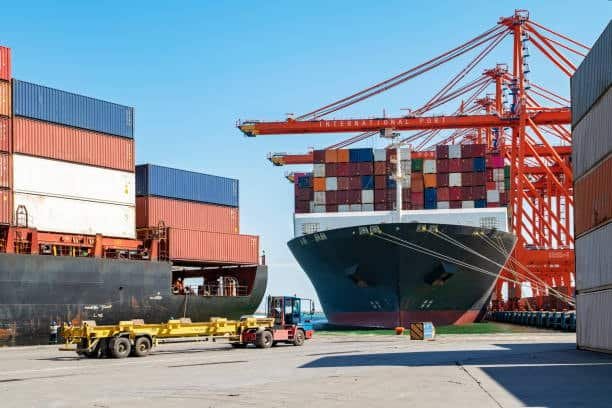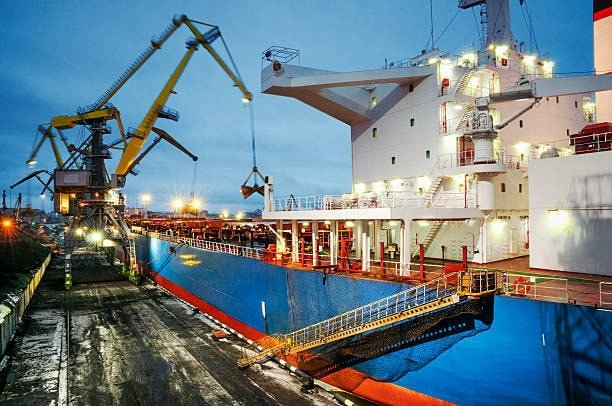What is Freight on Board (FOB): The Essential Definition
Freight on Board (FOB) means that the seller transfers both ownership and risk of the goods to the buyer at a certain point in transportation. The buyer and seller must agree on this point to see who is required to cover expenses like transport, insurance, freight costs, and lost or damaged goods. The FOB identifies the place where the transfer of risk happens which is very important in both contracts and shipping agreements.

“Freight on Board” began with the maritime shipping industry and is now used for rail, truck and air transport as well. After agreeing on FOB, both parties have solid boundaries concerning responsibilities, risk management, and arrangements for transport, including freight prepaid options. It helps reduce arguments and smoothens purchases and sales among partners in many regions and cultures.
Understanding FOB Shipping Point vs FOB Destination
Under FOB terms, the distinction is usually between FOB Shipment and FOB Destination which indicate how much responsibility each party has. When the goods are moved from the seller’s premises, the buyer becomes responsible and own them through the FOB Shipping Point. The buyer covers all shipping fees, is responsible for any problems during transport and must sort out their insurance.
FOB Destination leaves the burden on the seller until the item arrives at where the buyer has asked for delivery. The owner of the goods still owns them until they reach the buyer, pays for shipping, insures them and is responsible for any harm that happens before the buyer gets them. Because sellers set prices to cover transportation, the products tend to cost more, but buyers can trust that logistics are handled well.
The Legal Implications of FOB Terms in Commercial Contracts

These terms have major legal impact in both commercial and international trade law. When there are differences, these designations hold legally enforceable rights and obligations that courts will consider. Should the FOB Shipping Point be decided, the buyer gains legal title once the fob destination freight shipment is handled, so they will be responsible for anything that happens next. Because of this transfer, the process for insurance claims, who is liable and settling disputes is affected.
The rules about FOB terms differ from one place to another, but commercial legal systems usually see these as common practice. It is better to include FOB terms in all order and shipment documents, since this forms a clear record for legal uses in case of disputes. To prevent uncertainty and costly legal issues, businesses must clearly list the point of delivery in the contracts.
FOB in International Trade: Incoterms and Global Standards

FOB terms are connected to the Incoterms (International Commercial Terms) as defined by the International Chamber of Commerce. Incoterms give clear guidelines about what each side in a trade is responsible for which helps run global transactions smoothly. As described by the current Incoterms 2020, FOB is specifically known as Free on Board, only for sea and inland waterway shipping.
FOB as described by Incoterms means the seller’s responsibility is to deliver goods on board a ship the buyer has listed, at the named port of shipment. It is the seller’s responsibility to take care of exporting the goods, paying all the fees in advance, until they go on board the ship. Be careful to see how FOB is used domestically, compared to international Incoterms, as definitions might not be the same. It matters a lot in cross-border transactions, since many legal systems and trade rules may be involved.
How FOB Terms Affect Shipping Costs and Pricing Strategies

FOB terms play a big role in businesses deciding on prices and handling costs of moving goods. A business using FOB Shipping Point can charge lower prices for its transport costs since it doesn’t include shipping fees which might appeal to customers who look for cheaper prices. Still, consumers have to handle shipping plans and payments by themselves which may cause inconvenience for them.
With FOB Destination pricing, the buyer sees an increased quote but is able to calculate the total cost which helps them manage their budget and make purchases. With this strategy, sellers should include the seller pays price of shipping into their calculation and provide room in the price for themselves. Because FOB terms can influence how a business competes, interacts with customers and operates, it is not just a shipping decision, but a key strategy choice.
Risk Management and Insurance Considerations with FOB

Risk management is very important in FOB cases, since the point of transfer affects who is responsible for any problems, damage or delays. If the FOB Shipping Point terms are used, buyers should make sure to arrange cargo insurance under fob origin freight prepaid to protect what they have shipped. The insurance you choose should protect against the total amount of goods and also business interruption damage.
Sellers who use FOB Destination terms usually have shipping insurance that keeps their goods insured until they are delivered. It’s important that the insurance protect you, whether you are on land, water or in the air and includes regulations from other countries and the risks in each region. When businesses assess their risks and buy the right kinds of insurance, they can prevent big financial losses, provide competitive prices and satisfy their customers.
Documentation Requirements for FOB Transactions

Having full documentation supports legal guidance and operational knowledge for every involved party in FOB deals. You should have purchase orders that are clear about the FOB placement and bills of lading that clearly show the transfer point, commercial invoices that give details on who owns what and shipping manifests to track the goods. All the documents must contain the same required FOB terms to avoid conflicts or misconceptions.
Extra papers may consist of certificates of origin, export documentation, clearance papers from customs and insurance certificates. Which party handles each document is influenced by the FOB terms agreed to in the contract. Having accurate and complete transportation costs documents speeds up customs, aids with insurance claims and aids in handling disputes during or after the shipping process.
Common Mistakes and Misconceptions About FOB Terms

Businesses make mistakes when putting FOB terms into practice, mainly because they misunderstand what they mean or have poor communication with partners. One widespread mistake is to think that how FOB terms are used, including when the buyer takes responsibility, is always the same, regardless of location, industry or law. Assuming this way may cause extra expenses, danger to the organization and problems with how it operates.
An error that happens regularly occurs when a company fails to make its internal processes match what was stated in FOB terms. Say, agreeing to FOB Destination without proper insurance and understanding the freight cost leaves the seller with a large amount of risk. In the same way, someone purchasing on FOB Shipping Point terms without creating clear receiving procedures may easily run into difficulty proving how the goods arrived and their condition. Good communication, appropriate training and regular use of these techniques can help avoid losing money in patients.
Industry-Specific Applications of FOB Terms
Each industry sets up FOB terms to fit their own ways of doing business and the risks they face. The automotive business depends on FOB terms to clarify warranty terms and obligations when recalls are needed which is why it is vital for both manufacturers and dealers. Technology companies usually apply FOB terms to manage important, time-dependent shipments since ownership change timing influences accounting and the level of customer satisfaction.
Because of market instability, sellers in the agricultural sector often prefer FOB terms for trading goods, as when ownership is transferred can impact the price a lot freight collect. There are rules set by the regulators that pharmaceutical companies should check, as they may influence the use of the FOB seller to the buyer with certain controlled items or temperature-sensitive goods. By learning how FOB works in different industries, businesses can correctly apply the terms and comply with the rules and rules needed in their industry seller’s shipping dock.
Best Practices for Implementing FOB Terms in Your Business
Putting FOB into practice effectively depends on consistent planning, good communication and consistent performance in every operation. Check every part of your supply chain to pick the best places to move goods where you can control costs and manage risks. Prepare a standard procedure for noting FOB terms in every important business document and make sure that employees are aware of how to properly use and properly communicate them fob destination freight collect.
Find logistics companies that know about FOB rules and can take care of your orders based on your chosen terms. Always check and make changes to your FOB policies as they are needed due to shifts in the business, rules or market conditions freight charges. Check performance indicators about shipping, delivery schedules and how satisfied your customers are to confirm your FOB policy is still meeting your company goals and offers a competitive edge shipping vessel.
Conclusion
Freight on Board terms are essential in commercial shipping since they explain who owns the products, who must pay for risks and additional costs and who is responsible for them. Knowing the meanings of FOB, its legal effects and how it is applied in practice helps businesses improve how they run their supply chain and avoid unnecessary risks. It is necessary to consider business aims, risk levels, what customers require and operational capabilities in order to use FOB terms correctly.


Thank you for reading!
Have questions, corrections, or better ideas? We’d love to hear from you!
We value every piece of feedback and promise to reply within 24 hours. Let's make this guide better together!
Note: Spam comments will not be published.